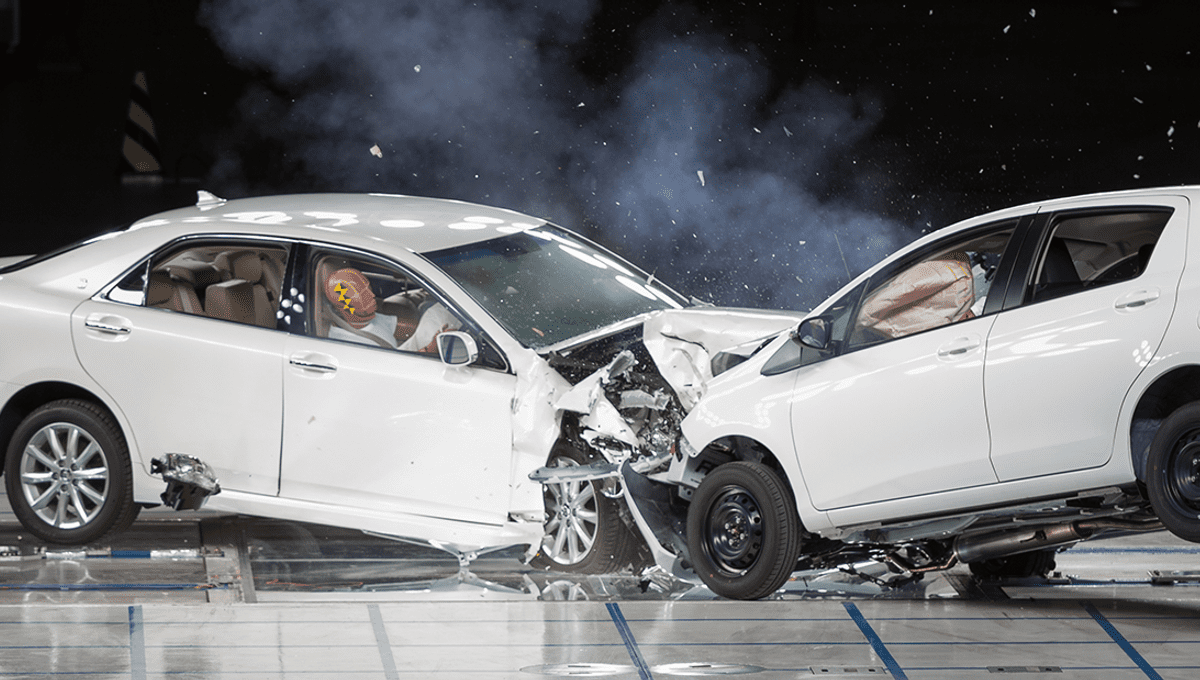
Here are a few horrifying statistics that have come out of several studies: women are 73 percent more likely than men to be seriously injured in a frontal car crash, almost twice as likely to become trapped in the wreckage of a car crash, and 17 percent more likely to die in a car crash.
So, what’s causing this? Well, there are a number of factors, and it largely falls down to vehicle designers not taking into account the differences between male and female physiques. One study in Sweden, for example, found that women are more prone to whiplash injury because car seats don’t give way to lighter bodies.
“Women are generally lighter than men, so they are catapulted forward more quickly, and subject to greater acceleration. A woman is also thrown forward hard against the seatbelt,” Anna Carlsson from Chalmers University of Technology told Science Nordic.
“The seats should be less stiff, more pliant. When a car is hit from behind, the seat back acts like a trampoline and catapults us forward. I’d like to see seat backs that are better cushioned, made a little softer.”
As Caroline Criado Perez, author of Invisible Women: Exposing the gender bias women face every day pointed out in 2019, women tend to sit closer to the pedals than men, generally being shorter while still needing to reach the pedals in order to operate the car. This is deemed to be “out of position” driving rather than the manufacturer-recommended position. Sitting in this position, though required in order to drive, puts the driver at a greater risk of injury.
Part of the problem is how cars are tested. Before crash test dummies, human cadavers were used in crash tests. As well as problems with sorting previous injuries from those sustained in the tests, there was a demographic problem, in that most of the cadavers supplied were of older males.
When crash test dummies took off, this would have been an ideal time to correct that, and perhaps throw in a few other body shapes for good measure, but unfortunately, the route humanity went down was to almost exclusively test cars on crash tests based on males, and then extrapolate for everybody from that. There are child crash test dummies, but the dummies representing female bodies are scaled-down man dummies roughly the size of a 12-year-old girl, at 149 centimeters (4 foot 8 inches) tall.
Researchers have recommended developing female crash test dummies and using them as standard during testing in order to make cars safer for women. Pregnant crash test dummies have been used in the past, but also need to be included in safety tests in order to improve safety, according to researchers. Tests using crash test dummies simulating pregnant people suggest that three point restraint systems are safer for the parent and fetus during a crash.
Efforts are being made to repair the disparity. A female crash test dummy was recently designed by Swedish researchers. The team hopes the dummy can be used to learn about the different injuries – such as a broken pelvis – which happen disproportionately to females involved in car crashes.
“You can’t have the same device to test a man and a woman,” Christopher O’Connor, CEO of the largest manufacturer of crash test dummies, told the BBC. “We’re not going to crack the injuries we are seeing today unless we put sensors there to measure those injuries.”
“By measuring those injuries we can then have safer cars with safer airbags, with safer seatbelts, with safer occupant compartments that allow for different sizes.”
For now, there remains an alarming disparity in injuries and fatalities between men and women, which we’re only starting to understand.
Source Link: Why Are Women More Likely To Die In Car Crashes Than Men?